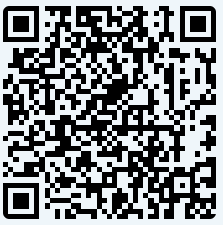Best Practice for Coping in Times of Turmoil
News reports about public health emergencies, natural disasters, and societal turbulence may contribute to increased mental and emotional health distress.
Review these fact sheets from SAMHSA, The Substance Abuse and Mental Health Services Administration, to learn tips for coping with stress during an infectious disease outbreak and ways to cope and support oneself during such an experience:
- Coping with Stress During Infectious Disease Outbreak
- Taking Care of Your Behavioral Health During an Infectious Disease Outbreak
I Spent a Year in Space, and I Have Tips on Isolation to Share: Scott Kelly is a retired NASA astronaut who spent nearly a year on the International Space Station. In this op-ed, Kelly shares his tips and strategies.
40 Meaningful Things to Do at Home During a Pandemic: Here's a list of 40 meaningful activities you can do (that are free or only of modest cost) when you're self-isolating at home or stuck in quarantine.
Ten Percent Happier: Coronavirus Sanity Guide: The meditations, podcasts, blog posts, and talks on this page will help you build resilience and find some calm amidst chaos.
- Acknowledge your feelings and emotions. Allow yourself time to reflect on what you are feeling and how you may be reacting to or coping with these feelings.
- Maintain your day-to-day normal activities and social outlets. Resist withdrawing and isolating yourself from the support and caring that others can provide.
- Seek accurate information from "The Center for Disease Control and Prevention" and limit exposure to social media and news reports that provide no new information.
- Pay attention to positive news instead of only focusing on negative and fear-producing reports.
- Follow the protection and prevention tips given by medical professionals such as the Health Center here on campus, national medical authorities and your own medical doctor.
Studying from home can be challenging and may require stronger willpower than usual to stay focused. If ISU implements an Online-Learning Model, review these Tips for Studying From Home.
The Counseling and Mental Health Center is aware that fear and anxiety can impact our treatment of each other. In an effort to maintain and promote mutual trust, respect, civility and dignity in our community, please consider practicing the following:
- Be aware of your behavior or attitude change toward others.
- Avoid making generalizations about students, faculty, or staff.
- Examine any irrational or rigid thoughts that can exist when there is uncertainty.
- Listen and attend to each other with empathy, kindness, and compassion.
Please reach out to our office at (208) 282-2130 or other campus resources if you (or another student you know) are experiencing any of the following:
- Increased anxiety, worry, fear, and feelings of being overwhelmed
- Depressive symptoms that persist and/or intensify
- Inability to focus or concentrate accompanied by decreased academic performance
- Sudden anger and disruptive behaviors or noticeable changes in personality
- Isolating or withdrawing from others, fear of going into public situations
- Unhealthy coping (e.g. increased alcohol or drug use, engaging in risky/impulsive behaviors)
- Sleep difficulties
- Excessive crying


